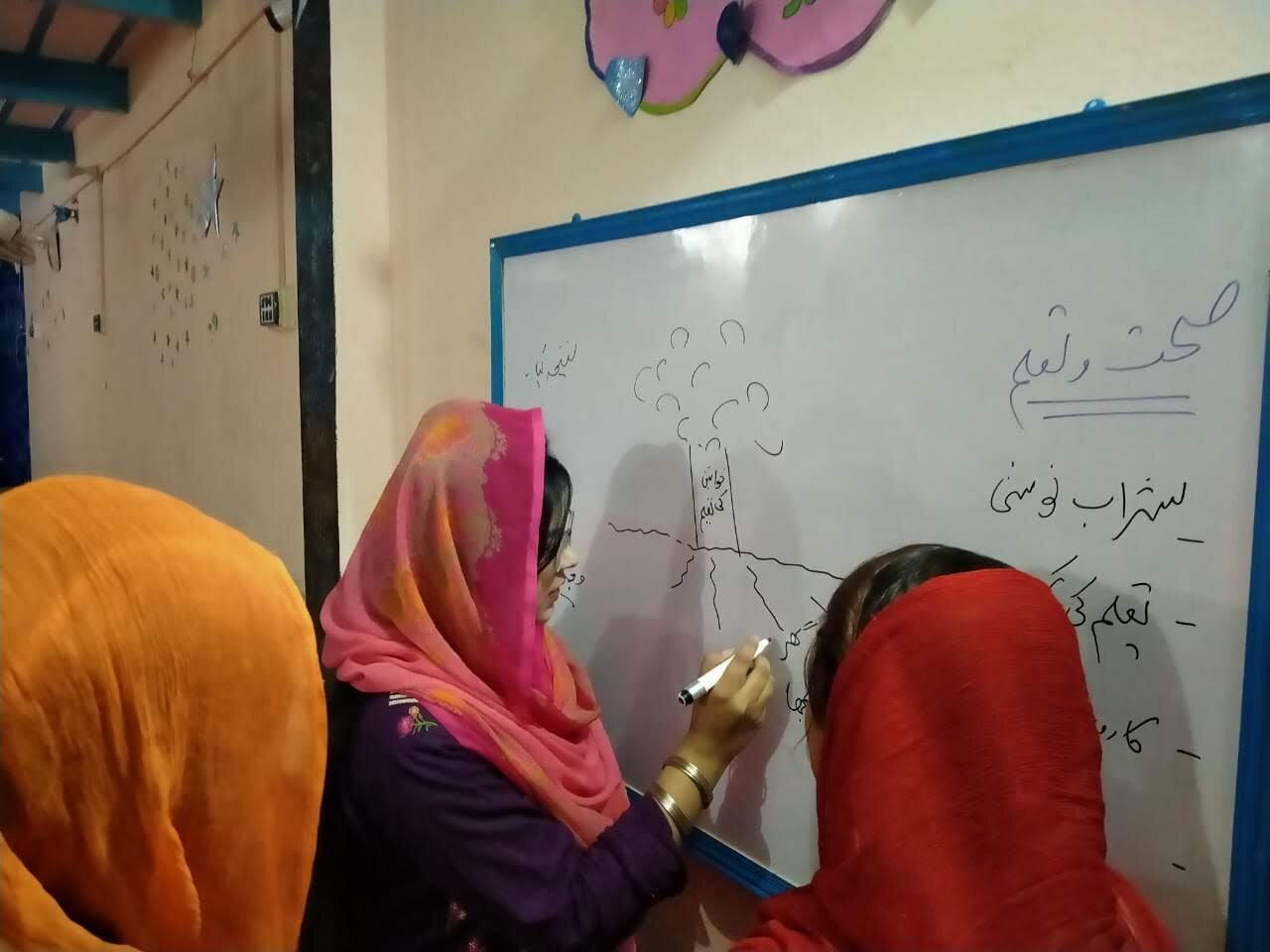Hazeen Latif and Johnny Fisher
In a world suffering from too many strong people using their strength to enforce their will on others, its really exciting to find this Pakistani youth group who are using their strengths to listen to their community. These young people from a church in the small city of Jauharabad said they had felt despair about the social problems in their community. Despite these feelings, they showed incredible belief in the possibilities for change and invited Hazeen Latif from HCR Pakistan to come and show them how to do community-centred media.
Problem Tree Exercise
Before starting on any media production, Hazeen took them through a process of listening to each other to understand why they thought their community was struggling. Hazeen showed them how to use a ‘Problem Tree’ tool to analyse the issues they raised. This broke down the seemingly insurmountable problems into root causes. The group realised that they could address some of these root causes themselves. “The Problem Tree was a real inspiration. We felt we had a way to address issues in our community”. They were so excited about the possibilities that they insisted on working late into the evening, that day and the next!
The next day they learned how to make Community Service Announcements (CSAs) - a simple but powerful tool to stimulate community conversations. They also learned how to make radio interviews. They interviewed one of the participants who has been recovering from drug addiction. As he shared his story the group understood the power of community voices to inspire others in the community and show that change is possible.
This CSA created by the Jauharabad group, advocates for girls’ education. A hungry man is angry with his sister for not cooking and he rips up her study books. 6 months later he takes his wife to hospital and insists on her being treated by a female doctor. There are none because of lack of education opportunities.
Before the workshop, this church youth group had talked about their sense of marginalisation as less well educated young people in a minority group. But by the end of the two days they spoke instead about being a trigger for widespread community transformation. The audio content they create will be distributed via Facebook and shared Speakerboxes. The youth group also has aspirations to work with a local FM station.
Communities facing disadvantage often find it difficult to contribute to the costs of community development workshops. This creates a difficult dilemma - we want to respond to community invitations to equip people, but we want to do so without propagating an NGO dependency culture. However, from the beginning, this youth group had determined to be hosts for the workshop, providing food, accommodation and training materials all from their own resources.
The participants said “We need more trainings”.
I heard the story and thought, “The world needs more people like this youth group!”
Many struggling communities are full of people with such positive attitudes and willingness to serve their communities. It is our joy to find them and help them use community-centred media to do just that.


